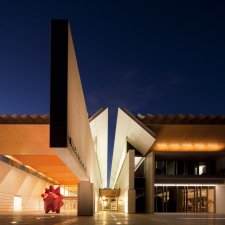- About us
- Support the Gallery
- Venue hire
- Publications
- Research library
- Organisation chart
- Employment
- Contact us
- Make a booking
- Onsite programs
- Online programs
- School visit information
- Learning resources
- Little Darlings
- Professional learning
Ourou-Marae (life dates unknown), also known by the nickname Bulldog, was a Gweagal man, the Gweagal being a clan of the Dharawal-speaking people whose country encompassed the Royal National Park, Kurnell and Port Hacking. In August 1805 he was exiled to Norfolk Island on the orders of Governor King, having earlier been confined at Parramatta Gaol for his involvement in a series of raids on properties in the Hawkesbury district. His accomplice in these raids, a man known to colonists as Musquito, was also banished to Norfolk Island and then to Van Diemen’s Land. The authorities there prevented Musquito from returning to Sydney. In 1823, Musquito expressed to Wesleyan missionary William Horton a willingness to ‘till the ground and live as the English do’. Instead, embittered by betrayal and reportedly shunned by the convict class for his effectiveness as a tracker, he returned to the bush, eventually joining the so-called ‘wild’ Oyster Bay people in their resistance to dispossession and white violence. Implicated in the murders of several stockkeepers on the east coast, Musquito and another man were captured in August 1824. They were subsequently tried and convicted on dubious evidence, and were hanged in Hobart in January 1825. Ourou Marae remained at Norfolk Island for several years before being permitted to return home.
Purchased 2009



On one level The Companion talks about the most famous and frontline Australians, but on another it tells us about ourselves.



Visit us, learn with us, support us or work with us! Here’s a range of information about planning your visit, our history and more!



We depend on your support to keep creating our programs, exhibitions, publications and building the amazing portrait collection!